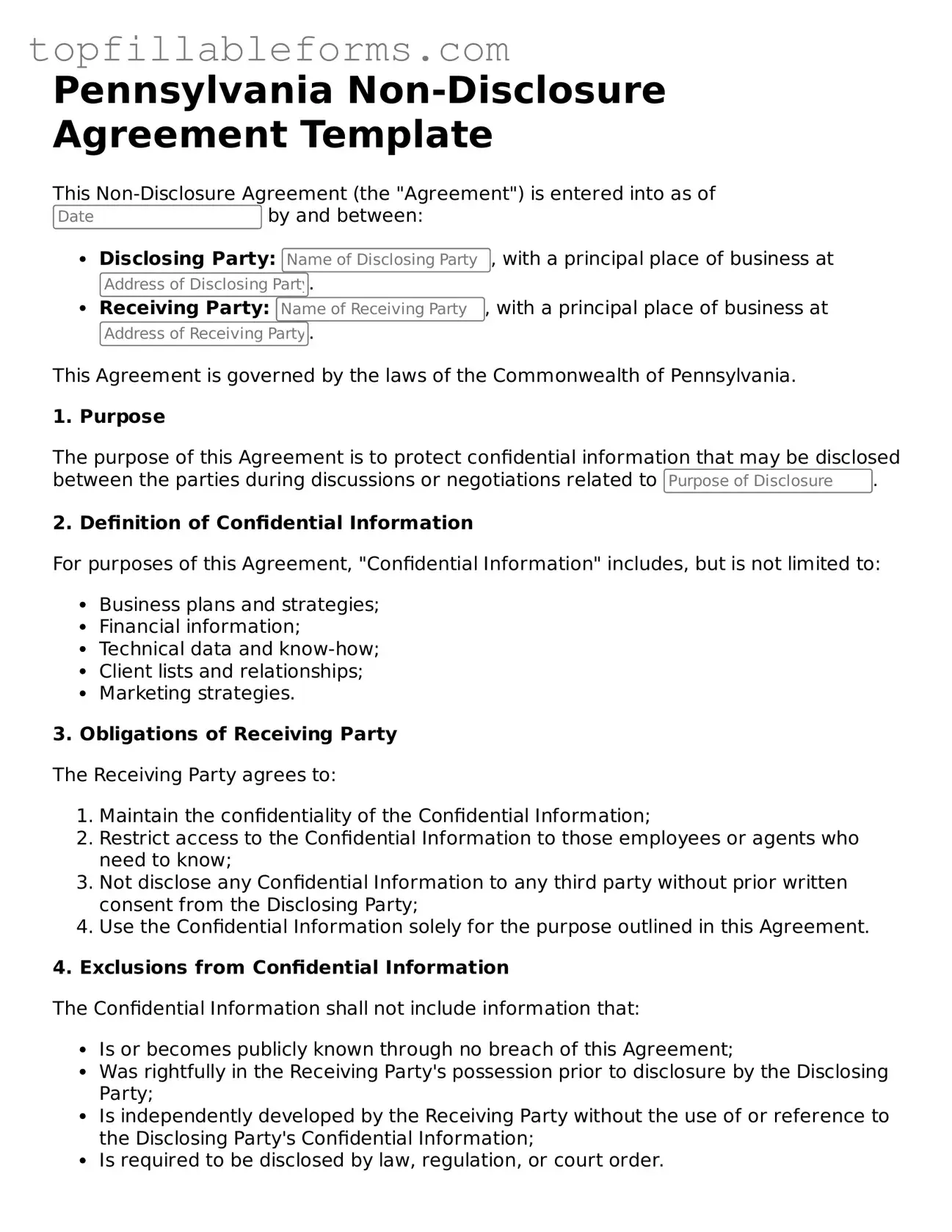Attorney-Verified Non-disclosure Agreement Template for Pennsylvania
A Pennsylvania Non-disclosure Agreement (NDA) is a legal document designed to protect confidential information shared between parties. This form establishes a mutual understanding that sensitive data will not be disclosed to unauthorized individuals. By signing an NDA, both parties can engage in discussions or collaborations with the assurance that their proprietary information remains secure.
Open Non-disclosure Agreement Editor Here

Attorney-Verified Non-disclosure Agreement Template for Pennsylvania
Open Non-disclosure Agreement Editor Here
Finish the form now and be done
Finish your Non-disclosure Agreement online by editing, saving, and downloading fast.
Open Non-disclosure Agreement Editor Here
or
▼ PDF File
